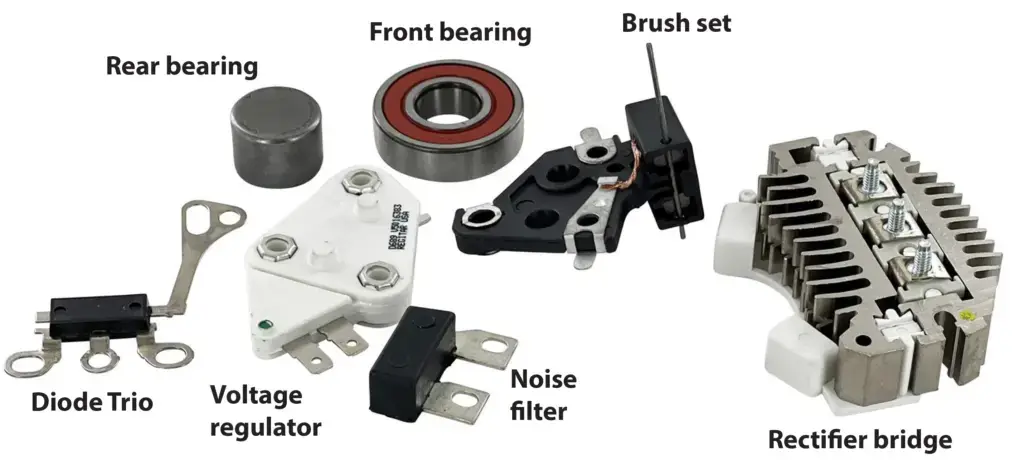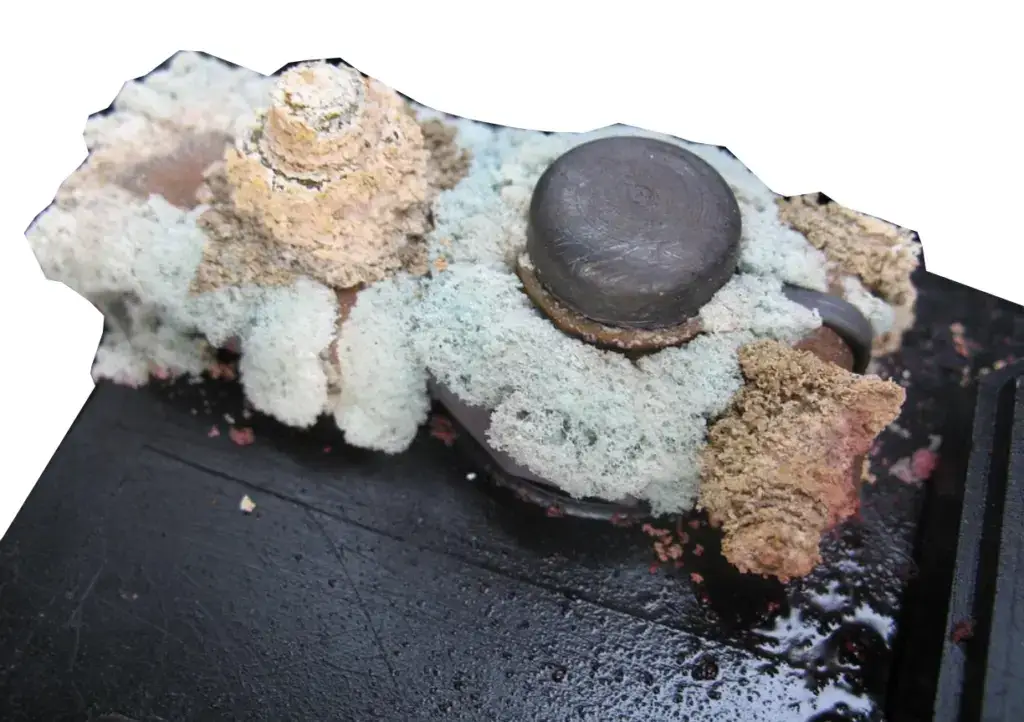Average alternator life — what you can expect
Average alternator life is about 7 years or 150,000 miles

The voltage regulator, diode trio and rectifier are all solid state electronics that can fail to due to overheating and constant charging
Average alternator life is about 7 years or 150,000 miles. But owners can kill their alternators early by not properly maintaining their electrical systems. Driving with a bad battery, corroded battery terminals or even a worn out automatic belt tensioner can reduce alternator life. Read more to learn the most common causes of early alternator failure.
Here’s what kills an alternator
These electrical issues can reduce alternator that affect how long an alternator lasts
• A bad battery can cause an alternator to fail early. A shorted cell in your battery can force your alternator out output more than normal the entire time your engine is running. In fact, the main cause of repeat alternator failures is a shorted cell in the battery.
• High resistance at the battery terminals dramatically

Notice the corrosion and the wetness on the top of the battery. This car battery is leaking between the case and the post
reduces average alternator life. Just like a shorted cell in your battery, high resistance due to terminal corrosion can cause your alternator to run full time and fail early.
• Improper jump starting can damage an alternator. Reverse polarity can blow the diodes, rectifier and voltage regulator in your alternator. Make sure you connect jumper cables to the right places
• Using your alternator to recharge a dead battery can cause it to overheat and fail early. An alternator is not designed to charge a dead battery. If you think you can jump start your car and then it sit and idle to recharge the battery, don’t be surprise that your alternator doesn’t come close the average alternator life. Charging a dead battery using your alternator causes to to output at maximum, which cause the rectifier and diodes to overheat and fail.
Drive belt issues can cause early alternator failure. The front and rear bearings fail early if you don’t replace you automatic belt tensioner when it’s worn. Engines don’t produce smooth power, it comes in pulses and an automatic belt tensioner has a dampening mechanism to smooth out the pulses. When that wears out, the vibration pulses are transmitted from the drive belt to the bearings on all the driven components, causing them to fail early.
See this post for more information on testing an alternator.
©, 2021 Rick Muscoplat
Posted on by Rick Muscoplat